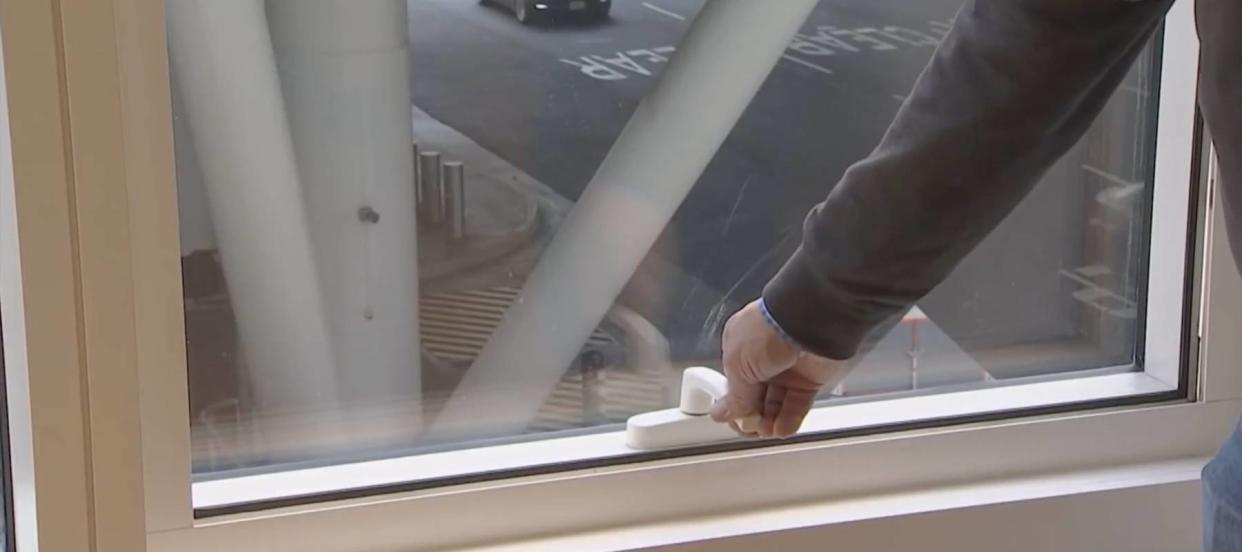Residents face $10K HOA fines for open windows in sinking San Francisco tower

Homeowners associations are designed to keep their communities in shipshape condition, but what happens when huge fines make the residents feel like they’re sinking?
That could be happening to the residents of the Millenium Tower in San Francisco, who are navigating fines of $10,000 per violation.
The tower previously made headlines for its engineering problems and subsequent structural issues like leaning and sinking back in 2020.
Don't miss
Commercial real estate has beaten the stock market for 25 years — but only the super rich could buy in. Here's how even ordinary investors can become the landlord of Walmart, Whole Foods or Kroger
Car insurance premiums in America are through the roof — and only getting worse. But 5 minutes could have you paying as little as $29/month
These 5 magic money moves will boost you up America's net worth ladder in 2024 — and you can complete each step within minutes. Here's how
The tower’s windows are also less than sturdy. In one incident, a window came loose from the 49th floor, slamming against the building and sending debris into neighboring buildings. Although nobody was injured, local authorities ordered the tower owners to install stronger support arms for the windows. Four years later, the work is finally being done.
Meanwhile, the tower’s homeowners association is attempting to prevent further damage through fines. Until all the windows are reinforced, the HOA is fining residents up to $10,000 for leaving their windows open when they are not home or during wind events, in addition to any damages the windows cause.
Here’s the question: Can an HOA subject its members to such high fines in the name of safety and security?
Do homeowners associations have the power to levy fines?
The role of a homeowners' association is to govern the community and ensure appreciation of property values through rules and regulations. Communities can come in different shapes and sizes, ranging from planned housing developments to condominiums, and even — in the case of San Francisco — apartment ownership in a tower.
It’s often mandatory to join the HOA as a condition of home ownership, which comes with monthly or annual dues. To create new rules or enforce current rules, the HOA’s board must meet and come to a consensus with the assistance of its membership, which elects the directors.
For Millennium Towers, the HOA retains the right to increase fines for window violations to $10,000 per event, if the board were to vote for it per their bylaws. A property attorney who deals with condo association laws told NBC Bay Area that the safety concerns could justify the high fines.
“It is incumbent upon the board to make sure that the residents and the structure itself are properly protected,” lawyer Sandra Gottlieb said.
Read more: Car insurance rates have spiked in the US to a stunning $2,150/year — but you can be smarter than that. Here's how you can save yourself as much as $820 annually in minutes (it's 100% free)
Is there any recourse from homeowners' associations?
Although there are no federal laws regulating homeowners associations, some states do have statutes defining what a HOA can and can’t do. These rules vary. In New Jersey and North Carolina, a dispute between an association and their homeowners is considered a private and civil matter with no public recourse. In Arizona and Maryland, there are state laws on the books that homeowners can turn to for help.
If you want to dispute a rule or decision against your property handed down by an HOA, the first step is to review the legal documents that govern your community. Every HOA is required to have bylaws, a Declaration of Covenants, Conditions and Restrictions, rules and regulations or potentially all three. These spell out what your responsibilities are as a homeowner, and what the HOA can do if you’re not fulfilling your requirements.
Next, request a meeting with the HOA leadership to review the violations and determine if there is an agreeable way forward. The Community Associations Institute advocates for alternative dispute resolution programs to help homeowners and associations come to “a satisfactory and timely resolution” and avoid lawsuits.
If a situation cannot be resolved, the final step is either to take action through a state body governing HOAs (if your state has one) or take legal action. The challenge of going down one of these routes is that they can take an extended amount of time to resolve, costing homeowners additional money in attorney fees, daily penalties for noncompliance, or both.
What to read next
Unlock access to 4,700+ hand-picked, single-family homes across America — and the juicy rental cash they can generate. Here's how to start with as little as $10
Cost-of-living in America is still out of control — use these 3 'real assets' to protect your wealth today, no matter what the US Fed does or says
Rich young Americans have lost confidence in the stock market — and are betting on these assets instead. Get in now for strong long-term tailwinds
This article provides information only and should not be construed as advice. It is provided without warranty of any kind.
